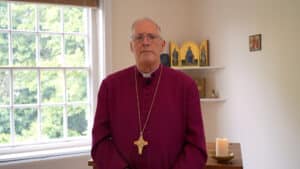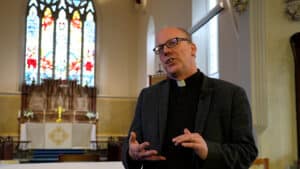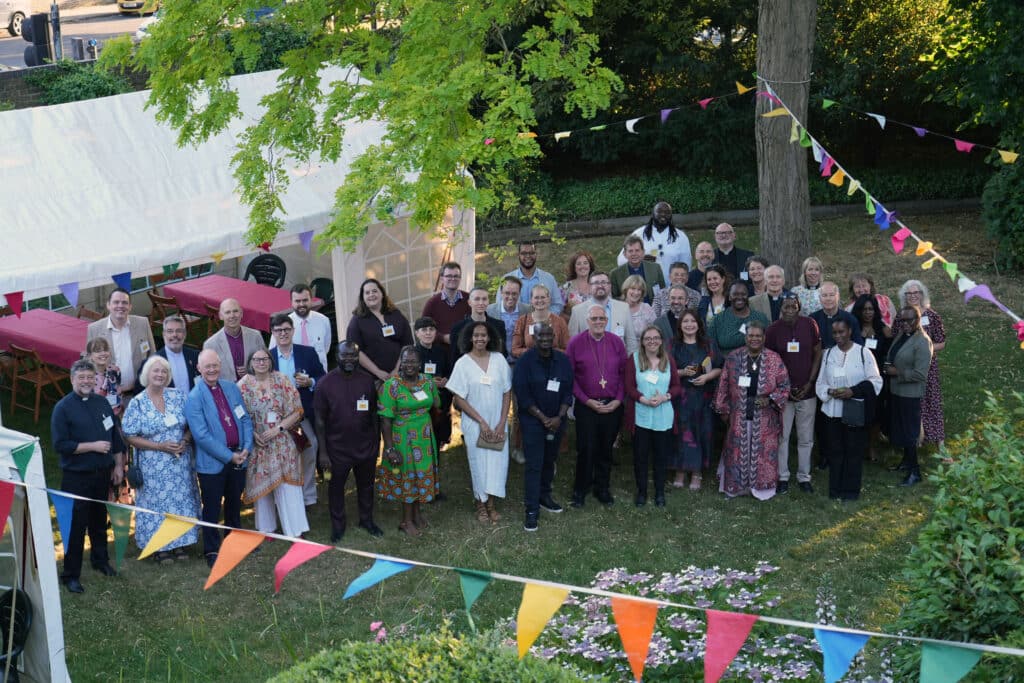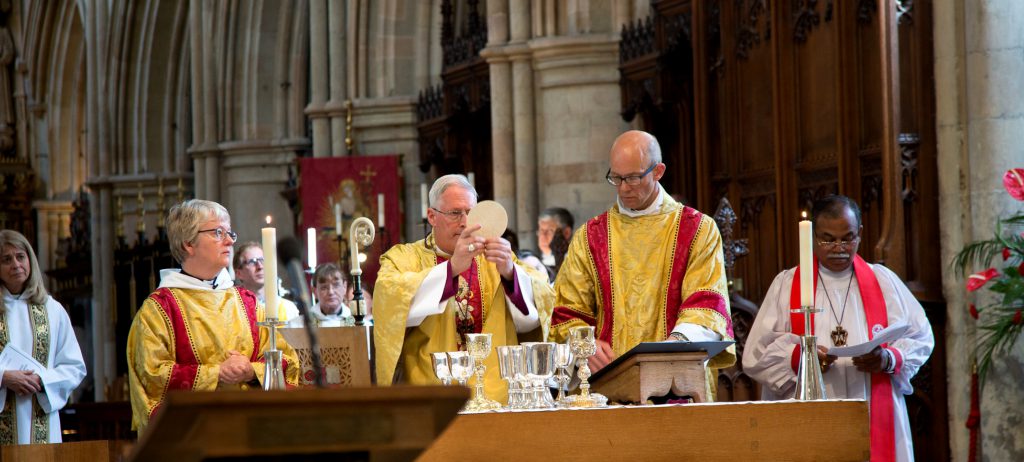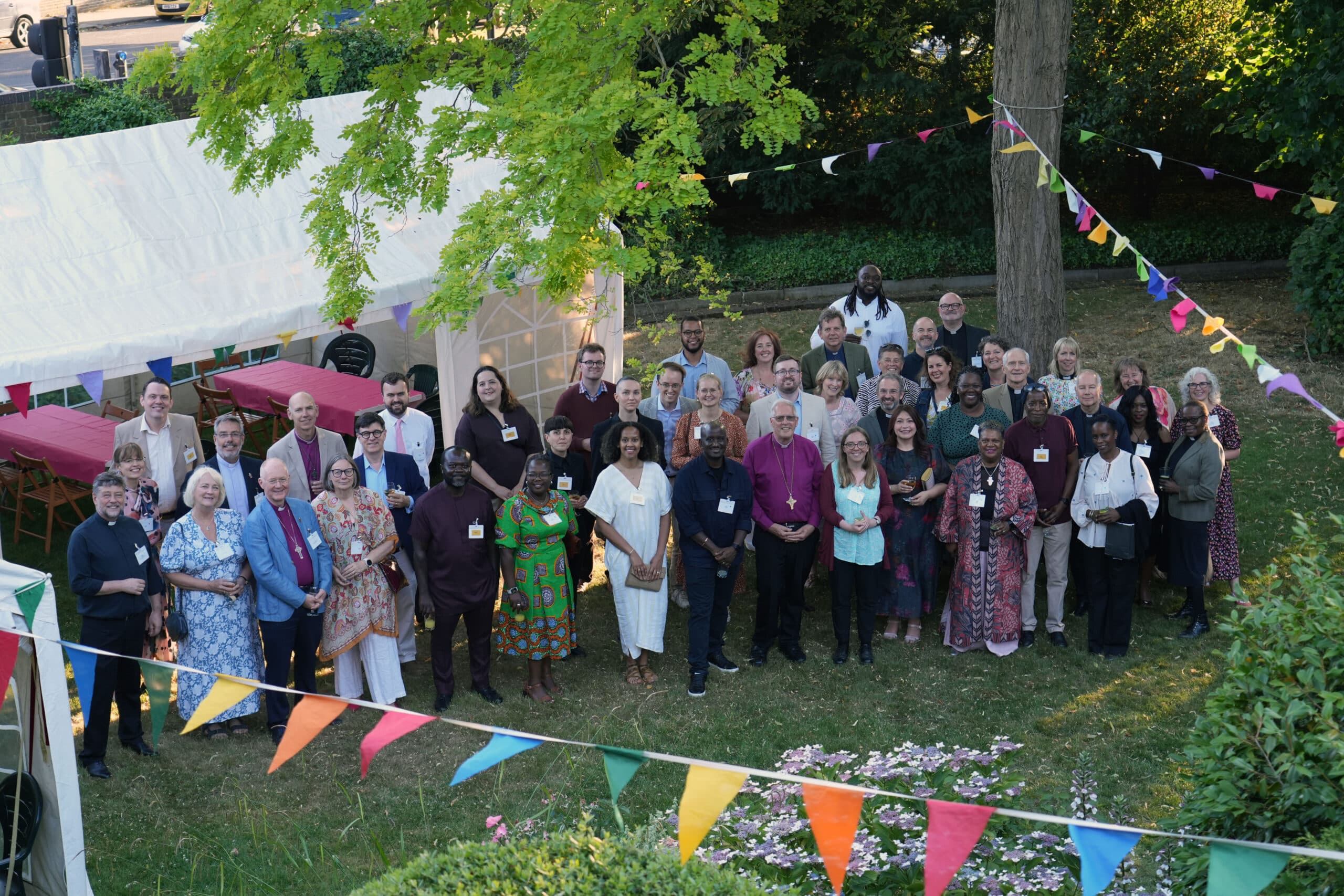The Diocese of Southwark announced today during Mental Health Awareness week that the Revd Canon Leanne Roberts, Diocesan Director of Ordinands and Director of Vocations, will be taking up a new part-time, five-year post as Dean of Clergy Well-being in the Diocese of Southwark and will leave her current post at the end of June.
The Bishop of Southwark, The Rt Revd Christopher Chessun, said: “Canon Leanne Roberts has been an outstanding Diocesan Director of Ordinands working sensitively with a wide range of clergy and candidates and developing for the Diocese a remarkable and resilient network of Vocations Advisers. I am delighted that Leanne will be taking up this crucial new role as Dean of Clergy Well-being in the Diocese. During the last two years we have intentionally enhanced provision and focus for lay leaders and lay ministers – as a synodical priority through the new Lay Council, new Bishop’s Advisory Groups for the existing lay ministries, and through the restructured department of Discipleship, Lay Ministry and Continuing Ministerial Development led by Canon Wendy Robins. Leanne, as Dean of Clergy Well-being, will join this team as we recognise that clergy well-being is integral to ongoing ministerial development.”
Speaking of her appointment, Leanne said, “I am delighted to have been offered this opportunity for a new chapter in my ministry. Promoting the importance of mental health and well-being has been a priority throughout my career, both before ordination in my work with the Cochrane Schizophrenia Group and subsequently as a university chaplain and honorary mental health chaplain at Littlemore hospital in Oxford. My work as Diocesan Director of Ordinands in Southwark with candidates and ordinands has given me invaluable insight into the breadth of the Church of England and the care needed to nurture vocations from all traditions and contexts to ordained ministry; this role feels like an organic development based on my experience and passions, and a natural outworking of my own priestly vocation. The chance to combine my psychotherapeutic training with this newly created role is an exciting one, and I am looking forward to supporting the clergy of the Diocese in their ongoing ministries.”
Canon Leanne Roberts is a senior priest and professionally qualified and registered as a Jungian psychotherapist. The role will provide support, guidance and appropriate signposting for therapeutic interventions, as well as some direct confidential therapeutic intervention. It will also develop Diocesan structures to create a network of support, working closely with the Archdeacons.
The Venerable John Kiddle, Archdeacon of Wandsworth, has been leading a group examining issues for clergy well-being and this new role will complement that work. He said: “Our synodical priorities for the next three years explicitly include the need to focus on clergy well-being and Bishop Christopher has indicated this as an area of personal commitment. The Archbishop of Canterbury, at national level, has stated this as a priority for the Church as we face substantial challenges and changes. These particularly affect stipendiary clergy and their families as their livelihoods and homes are integral to their practical, outward-focused vocations.”
The news comes after the Church of England announced that it is to make extra funding available to dioceses for grants to help clergy and lay workers struggling with the cost of living crisis.
Diocesan Secretary, Ruth Martin, said: “I am confident that, together with her professional therapeutic skills, Leanne will develop a network for clergy well-being, working closely with colleagues including the group chaired by John Kiddle. This post has the full support of the senior staff team including Wendy Robins, the Director of Discipleship, Lay Ministry and Continuing Ministerial Development, whose team Leanne will join. I welcome this new role as providing dedicated expertise in an area where we know that the Diocese needs to provide some front-line support. The Diocese already works with a range of external providers and Leanne will help us to evaluate the relative strengths of existing provision as well as provide some support herself and we hope to learn from this how best we can support clergy through change in their lives and the life of the Church.”




